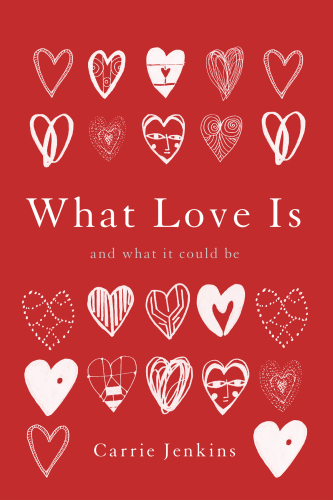
What Love Is
And What It Could Be
کتاب های مرتبط
- اطلاعات
- نقد و بررسی
- دیدگاه کاربران
نقد و بررسی

January 2, 2017
Jenkins, a philosophy professor at the University of British Columbia, shakes up the status quo from the very start of this philosophical inquiry into the nature of love, revealing in the introduction that she is in a polyamorous relationship with her husband and boyfriend. But that revelation isn’t intended to shock; instead, it jump-starts a serious conversation about the true meaning of love and its societal implications. This leads to a fascinating discussion on monogamy and why it is a central component “in the social role of romantic love.” “If I had to whittle this book down to one message, it would be a simple one: think about love for yourself,” Jenkins says. Her book is more of a conversation starter than a conclusive study, but her main message to readers—“think about love for yourself”—is clear, and her vulnerable voice is charming and relatable.

November 15, 2016
In her first book, Jenkins (Philosophy/Univ. of British Columbia, Vancouver) examines romantic love as a phenomenon at the intersection of biology and social convention.Midway through the first page, the author tosses in an aside that hints at her unique perspective on the subject. "On the mornings when I walk from my boyfriend's apartment to the house I share with my husband," she writes, "I sometimes find myself reflecting on the disconnects between my own experience with romantic love and the way romantic love is normally understood in the time and place in which I live." To a certain extent, the book is a defense of polyamory, which Jenkins views as the next social frontier now that romantic love between same-sex couples has become more socially acceptable. Taking a historical perspective, the author explores the battle between those who believe that biology is the fundamental force determining the experience of romantic love and those who think that the experience is shaped by social forces. Unfortunately, this is such an abstract discussion that just what experience she is referencing is unclear. Though Jenkins often achieves a conversational tone, she also has a fondness for academic language; words like "amatonormativity" ("the idea that romantic love is ideal and a default for everyone") pepper the volume and make it less than fully accessibly for general readers. The author's cheerful exhortation to "choose your own adventure" may inspire some readers, but she has taken on such a broad, and familiar, subject that it's hard to find much new in her analysis. Perhaps if she had confined herself more narrowly and specifically to her own experience, she could have arrived at more significant insights. Those who don't already have a good idea what love is before beginning the volume won't have gained one by its conclusion.
COPYRIGHT(2016) Kirkus Reviews, ALL RIGHTS RESERVED.

December 1, 2016
Jenkins's (philosophy, Univ. of British Columbia, Vancouver) book is a quick meditation about love. She begins with a brief survey of the traditional dominant theories of love: as a biological phenomenon or a socially constructed incidence. Her argument is that focusing exclusively on this either/or dichotomy misses much of the nature of love, and that instead love should be considered dual-natured, encompassing both biology and societal/cultural constructs. This dualism serves to move the subject away from its present standing of an unknowable mystique and toward one that can be veritably studied and better understood. Only in this manner can we even begin to fathom love's complicated and interesting aspects. While the surveys of the biological and social construct arguments are almost too brief, the substance of this book comes with Jenkins's argument about the dual-nature. This new focus, she argues, allows our concept of love to change to include seemingly alternative parameters (such as same-sex marriage) and lead to a better understanding of its biological foundations. VERDICT More work needs to be done in this area, a factor that Jenkins touches upon, but her book offers a provocative start to a complex subject.--Laura Hiatt, Fort Collins, CO
Copyright 2016 Library Journal, LLC Used with permission.

Starred review from December 1, 2016
Jenkins's first book posits her theory that love is dualistic yet nonoppositional. She works to correctly attribute love's various characteristics, biological and social, to their origins. Misidentification of the social for the biological or vice versa, such as claiming women are naturally more monogamous, has disastrous and dangerous consequences. Jenkins' manifesto is, Proceed with interest and caution. Her book is required reading. She reveals early that she is polyandrous, engaged simultaneously in long-term relationships with a husband and a boyfriend. But autobiography ends there. She instead takes the reader on a survey of historical philosophy about love, using the scientific method to identify which ideas are useful and which are flawed. Equally important to its subject matter, the book is a master class in how to think and why. Jenkins researches, questions, unpacks, considers, and examines. A philosophy professor, Jenkins uses her readable book to advocate for thinking both critically and in great depth as a form of self-protection and self-advocacy. Tolerate no one admonishing you for overthinking love, she advises. Love is an extreme sport, and we need parachutes. In so arguing, she empowers her readers in regard to not just their love lives but also their whole lives.(Reprinted with permission of Booklist, copyright 2016, American Library Association.)

























دیدگاه کاربران